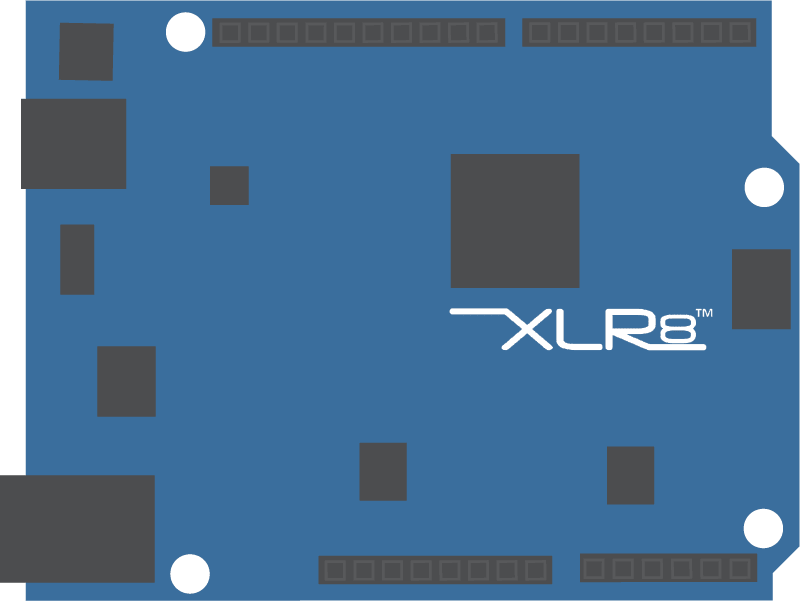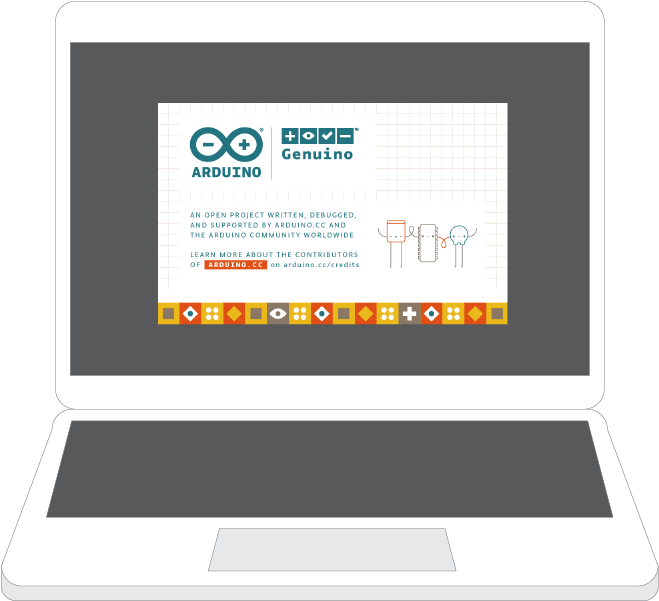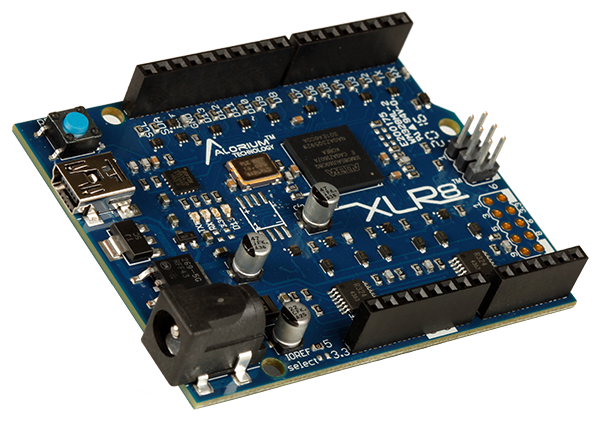
What is XLR8?
- Arduino-compatible development board
- FPGA-based
- Embedded 8-bit AVR instruction set compatible microcontroller
- Programmable with Arduino IDE
Advantages
- FASTER clock rates and overall application speed
- HIGHER-PERFORMANCE through hardware accelerated functionality
- CONFIGURABLE with custom Xcelerator Blocks on the FPGA
XLR8 can improve the speed, performance and functionality of your Arduino-based applications and projects!
3 Easy Steps
What people are saying about XLR8
Specifications
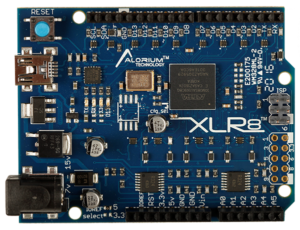
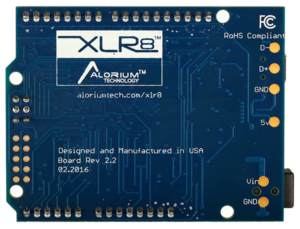
Physical Dimensions
- Based on the Arduino Uno
- Matches the Uno’s physical footprint – including pin headers for attaching shields
- Mounting brackets or shields that fit Uno will also fit XLR8
Digital I/O
- 5V Tolerant Inputs
- 5V Outputs
- 14 Digital I/O Pins
- 6 Analog Pins
Analog Inputs
- 5V
- ADC Performance: 1 MHz
- Resolution: 12-bit sustained
- Sample Rate: 254k samples/second
Memory
- Program FLASH: 32 KB
- Data Memory SRAM: 2 KB
- Available SOIC-8 location for optional external EEPROM
Purchase your XLR8 board today!
Xcelerator Blocks
What’s an Xcelerator Block?
An Xcelerator Block is an optimized hardware implementation of a unique processor intensive function. Since everything needs a cool acronym, we simply refer to one of these blocks as an “XB”.
XLR8 ships with pre-installed XBs that target application-specific behavior. These are listed on the right. XLR8 can be field-updated to change the XBs implemented on the FPGA. Learn more about XBs on the Xcelerator Blocks page.
XBs Pre-installed on XLR8
Enhanced Analog-to-Digital Converter
Floating Point Math
NeoPixel Control
Servo Control
Quadrature
Why XLR8?
XLR8 is a drop-in replacement for an Arduino Uno with an interesting twist. It is an Arduino-compatible board that uses a Field-Programmable Gate Array (FPGA) as the main processing chip.
The FPGA provides a reconfigurable hardware platform that hosts an ATmega328 instruction set compatible microcontroller.
The FPGA also accelerates specific functionality that is slow, problematic or even impossible for an 8-bit microcontroller.
The FPGA-based hardware acceleration and offload provided by XLR8 results in significantly improved performance in the same physical footprint and using the same tool chain as standard Arduino Uno boards.
XLR8 is a great solution for accelerating your Arduino-based applications and projects!

